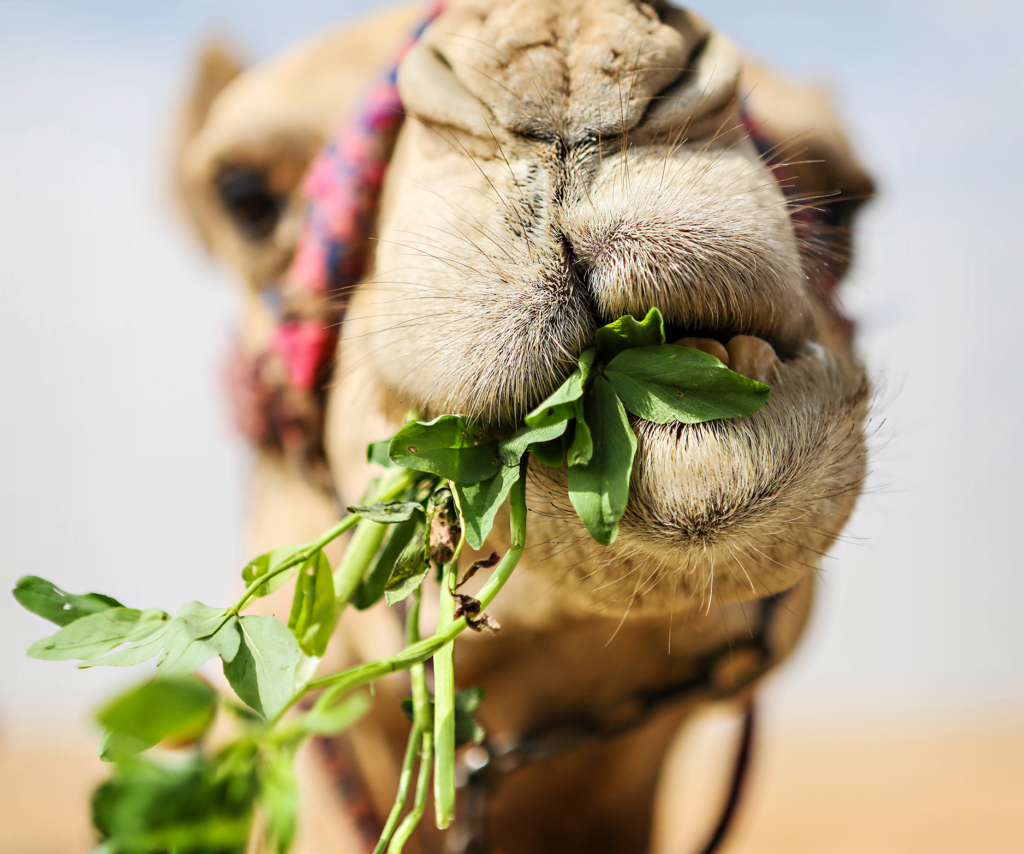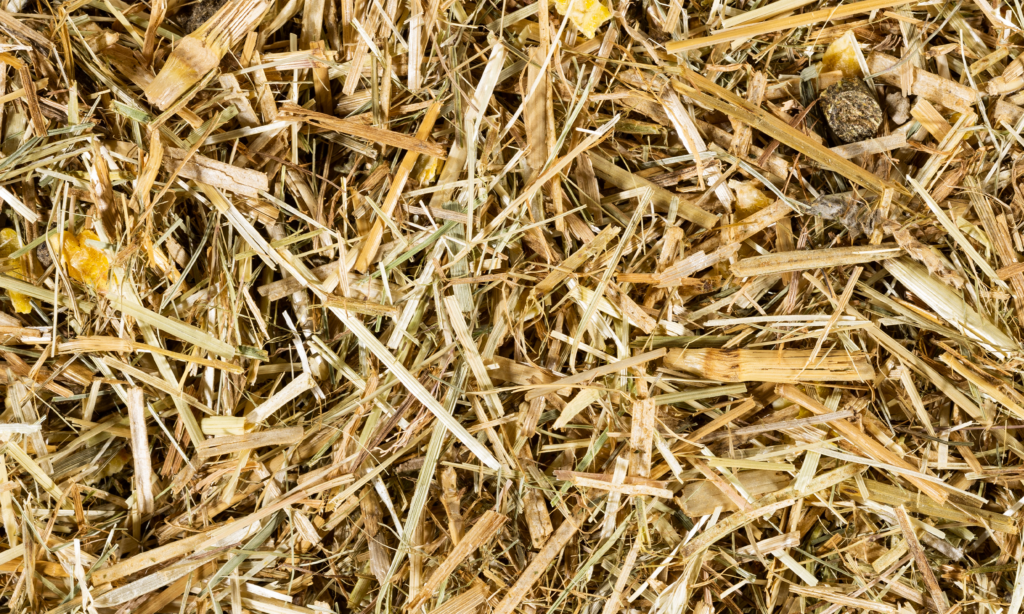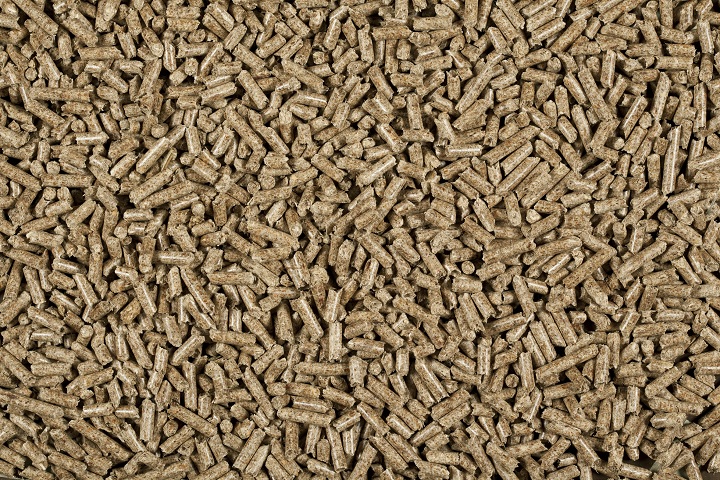At Gruppo Carli we have always been committed to offering the agri-food chain in general, and livestock in particular, fodder and feed that meets the nutritional needs of farm-raised animals while respecting their natural physiology, and that at the same time focuses on environmental sustainability.
The new Carli Camelids feeds, formulated specifically for camelids, achieve these goals by providing camels with a reliable source of nutrition and at the same time making the work of rearers easier, who often, in difficult environmental conditions and through strenuous work, live alongside these extraordinary creatures in over 90 countries around the world.
For camelids (Bactrian camels, dromedaries, llamas, alpacas, guanacos, vicuñas) to continue to be used for transport, for food or for leisure, it is essential to improve their health, productivity and performance to ensure the livelihood of local communities.
Raising camels represents a genuine opportunity for the prosperity for indigenous populations, guaranteeing them food, alleviating poverty and ensuring they can live in their lands in a satisfactory manner, encouraging the emancipation of women and allowing them to implement actions to adapt to climate change, conserve biodiversity and protect ecosystems.
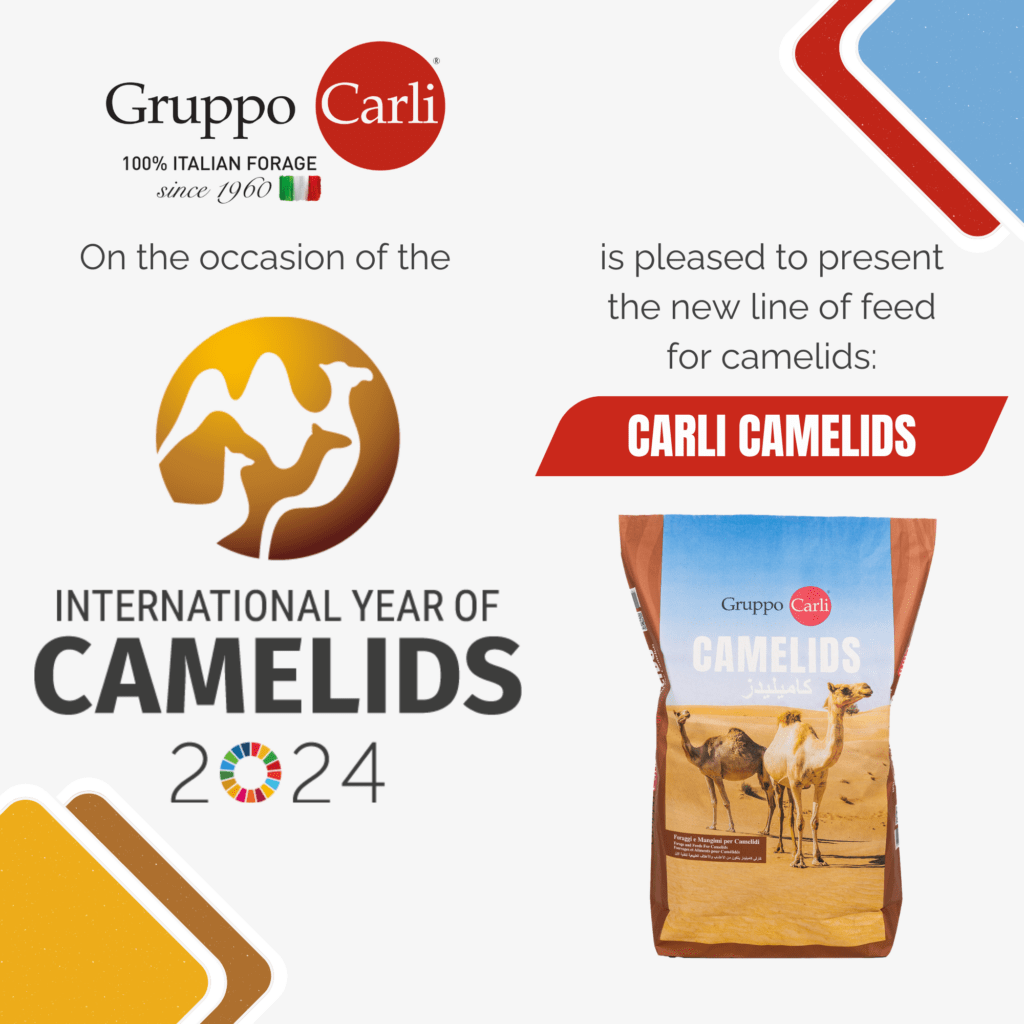
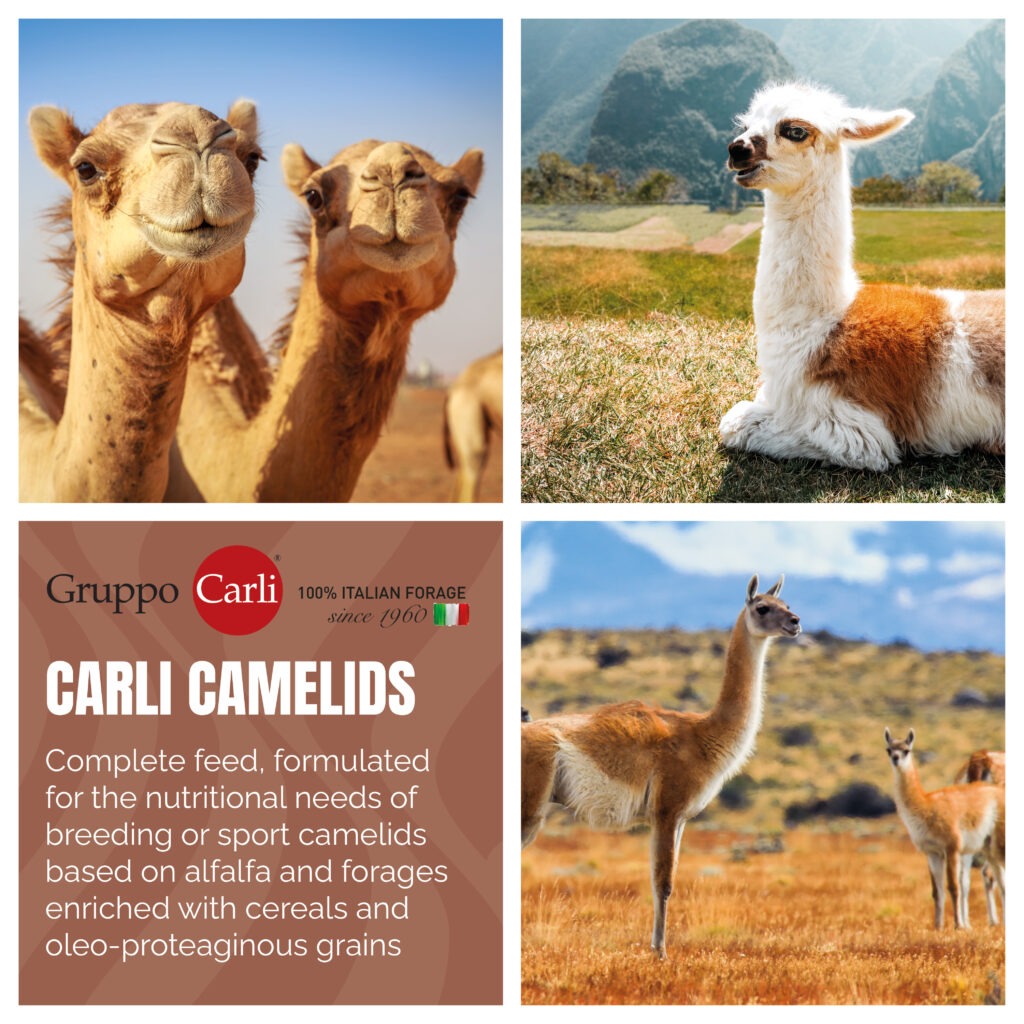
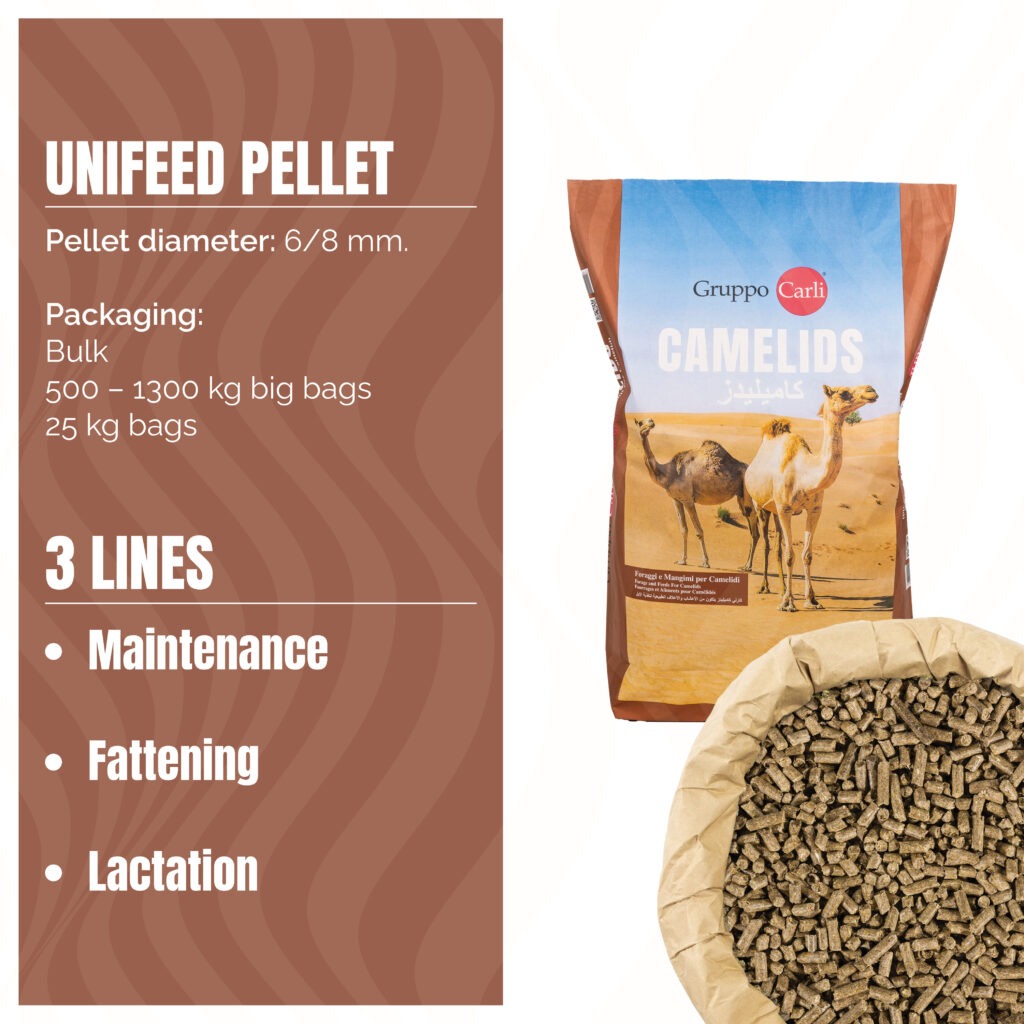
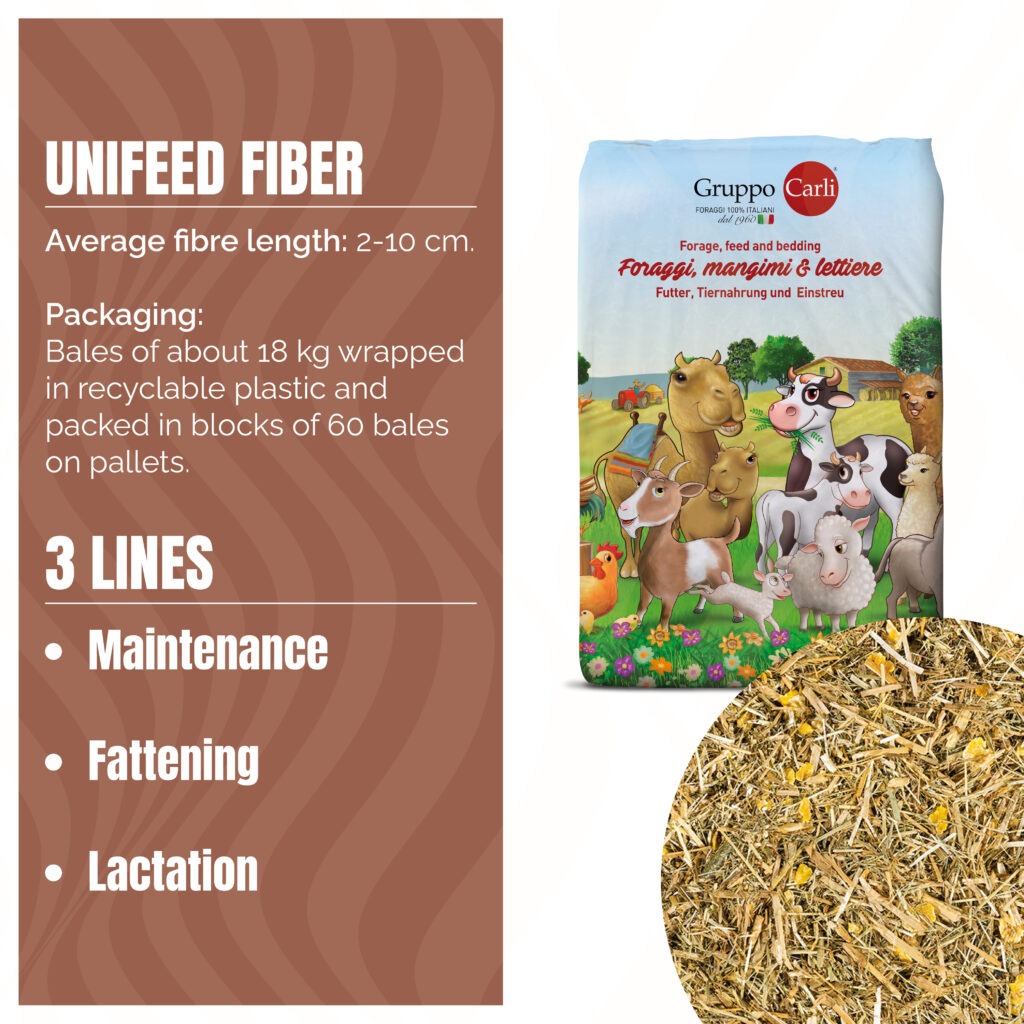
Formulated with specialised veterinary support, Carli Camelids feed consists mostly of fodder of its own production, enriched with cereals and high oil- protein crops. With no industrial by-products and with 100% natural ingredients, Carli Camelids feed allows camels to maintain good health and excel in productivity and performance, respecting their biological rhythm and their natural physiology.
The components of Carli Camelids feed are carefully selected to ensure an optimal mixture, which meets the specific dietary needs of camels during maintenance, fattening and lactation, and are available in pellet and fibre form.
Gruppo Carli joins the many organisations involved in the FAO IYRP 2024 initiative that, in addition to recognising the economic, social and cultural importance of camels, contribute concretely or encourage stakeholders to invest more in the camelid sector.
